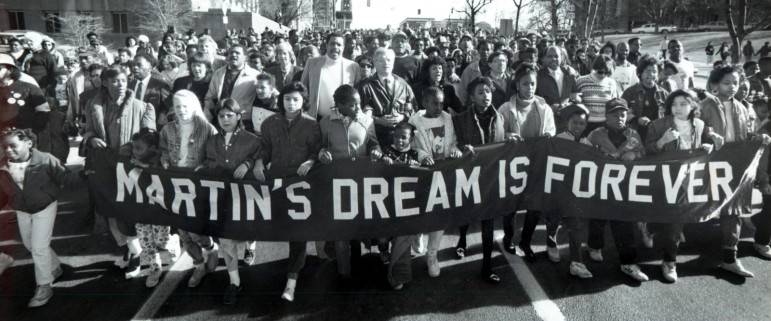Like most black people who were raised correctly, I grew up playing spades. I played as a teenager and on into my early adult years. My wife and I had a group of friends we would play with, and the games would get so intense that we would lose track of time and miss the evening church service from the firey competition and trash talk. Spades makes you feel the pressure to pay attention to what you’re doing for a couple of reasons. First of all, being bad at spades brings great shame to your family. Secondly, you have to pay attention so that you don’t renege. Lastly, you have a partner that is counting on you.
I’ve reneged plenty of times in my life. I’ve seen people almost come to blows over how somebody played their cards, and I’ve suffered the painful embarrassment of not playing my hand as well as I should. Spades is serious business! We play it, but it’s not a game!
There are different rules people use when they play spades. Some play with Jokers as the high cards and others with the 2 of diamonds and hearts as the top cards, but either way, you don’t want to mismanage the highest card in the game. Whatever the specific rules are you’re playing with, there is one card that trumps all. Playing it at the wrong time can cost you the game and possibly reveal that you’re not that great at spades and should have never been born.
There is a lot of drama around the spades table, especially when somebody doesn’t know when to use their trump card. Your partner, as well as the inevitably gathered crowd around the table, are all watching to see how you will play your cards. That can add complexity to what should be pretty straightforward. I find that knowing when to play the black card can cause similar angst.
Unfortunately, the act of bringing attention to race as a factor in a social dynamic has been reduced to a trivial exercise of gamesmanship – as if raising the issue of race is only a tactical effort for black people to evade personal responsibility. I find it interesting that we don’t accuse white people of playing the race card. Our culture usually reserves that claim for people of color trying to grasp for equal footing in a world that assumes that all races are an offshoot of whiteness.
The irony is that race is a conjuring of racism. The concept of race was only instituted to give racists a way of knowing who the good guys are from the bad. (I’ll admit that I have been wrestling with how we label ourselves ever since I stumbled upon that information, but that’s a conversation for another day.) We balk at people calling attention to racial injustice, discrimination, or cultural insensitivity because we are afraid that life will be harder when we have to pay attention to how our actions might affect someone else. It is embarrassing to be called out for lacking the awareness of how our words or actions may have negatively affected someone with a different cultural or ethnic background, but it’s a mistake to try and transfer that embarrassment to the victim in a pathetic attempt to relieve ourselves of the burden of change.
Too often in our society, we demonize people for having the courage to share their story. Black men and women across America bite their tongues and look the other way because they don’t want to “play the black card” and be labeled as angry or too focused on race. Some of us have been told that playing that card is an excuse to get an easy win, and as a result of that ideology legitimate claims of racial tension are too easily dismissed. A friend of mine once said we couldn’t play the black card enough. I’m inclined to agree, and here’s why.
I’ve had enough conversations with white men about race in the last few years to know that it’s never been harder to be a white man in America. That may sound like something that should engender sympathy for our white brothers, but that’s not my intention. I use the term “harder” as a genuinely comparative term. America has been oriented around the whims and concerns of white men since her conception, so it’s never been as hard to be a white man in America as it is to be black. That’s how the colonizers designed race. It was intended to establish who would sit at the top of the food chain in American culture, and that seat has read “White’s Only” for most of America’s history. Today we are challenging that notion. Through the work of civil rights activists 50 years ago on through to today, we have seen a change in how we view race. We have recognized that black isn’t evil or worse than white. How have we come to that conclusion? Courageous black men and women throughout history have dared to play the black card.


Whenever there is an inclination that something may be off because of racial dynamics, we should stop and evaluate it. If that means that people with power have to be more sensitive, then so be it. It says that we create space for people to voice their tensions about how they are being talked about, treated, or disregarded. No one should feel unsafe sharing their truth with the world. Just societies don’t penalize the marginalized for calling attention to their plight.
I’ve admittedly been reluctant to play the race card as if doing so is akin to reneging in a hotly contested game of spades, but lately, I’ve been challenging myself to trust my instincts more. I’ve permitted myself to share my truth, and I’ve been better for it. You’ve been better for it. I’ve realized it’s not my problem if someone responds negatively to me expressing the tension I feel over something they said or did that was culturally tone deaf. I’m realizing that I cheat my community out of the opportunity to grow if I keep my cards to myself.
The black card is not an excuse to get things to go my way. it’s not an easy out. If people in power will learn to accept the awkward tension it brings, we will find ourselves making progress in our society we never thought possible.



